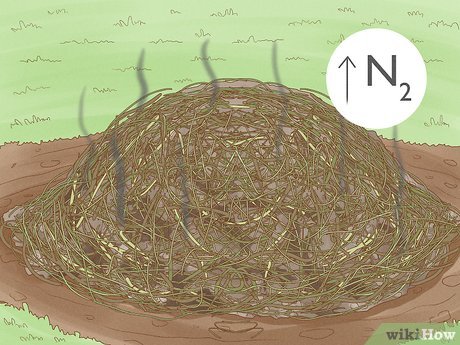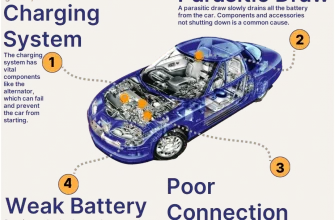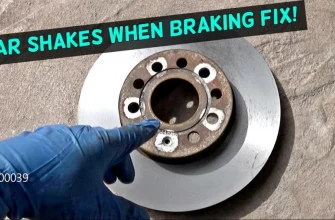Have you ever stepped outside into your garden or yard only to be greeted by an unusual odor that resembles gasoline? You’re not alone. This peculiar scent can leave homeowners scratching their heads‚ wondering what could be lurking beneath the surface. In this article‚ we will dive into the reasons why your soil might smell like gas and what you can do about it.
Understanding Soil Odors
Soil‚ much like the human body‚ has its own unique set of smells‚ some of which are perfectly normal. The earthy scent of healthy soil is typically attributed to the presence of organic matter and microbial activity. However‚ when foul or chemical-like odors arise‚ it can indicate underlying issues that deserve attention.
Why Does Soil Smell Like Gas?
There are several reasons why your soil might emit a gasoline-like smell. Let’s explore the most common culprits:
- Petroleum Contamination: One of the primary reasons for a gas-like odor is petroleum contamination. This can occur if there has been a spill nearby‚ often from fuel storage tanks‚ machinery‚ or vehicles. If your home is near a gas station or an industrial area‚ it’s possible that contaminants have leached into the soil.
- Decaying Organic Matter: As organic materials break down‚ they can release various gases‚ including methane. While this smell isn’t exactly like gasoline‚ certain conditions‚ especially in anaerobic (oxygen-poor) environments‚ can produce odors that might be reminiscent of fuel.
- Soil Bacteria: Specific bacteria thrive in anaerobic conditions and can produce volatile organic compounds (VOCs) that emit a smell similar to gasoline. These bacteria typically flourish in wet‚ poorly drained soils.
- Chemical Fertilizers and Pesticides: If you’ve recently applied chemical fertilizers or pesticides‚ the residuals can create a gas-like smell. These products often contain nitrogen and other compounds that‚ when breaking down‚ may produce odors akin to gasoline.
- Groundwater Contamination: If there’s been an issue with groundwater contamination‚ the smell may seep into the soil. This can be from nearby industrial activities or improper disposal of chemicals.
How to Investigate the Smell
If you detect a gasoline-like smell in your soil‚ it’s essential to take action. Here’s how you can investigate:
- Conduct a Visual Inspection: Look for any obvious signs of contamination‚ such as discoloration of the soil‚ dead vegetation‚ or unusual puddles.
- Check for Nearby Sources: Determine if there are fuel storage facilities‚ gas stations‚ or industrial sites nearby that could be contributing to the smell.
- Test the Soil: Consider taking a soil sample for testing. This can reveal if there are harmful chemicals or contaminants present. Many local agricultural extensions or environmental agencies can assist with soil testing.
- Consult Professionals: If you suspect serious contamination‚ it’s best to consult environmental professionals who can evaluate the situation and recommend solutions.
What Should You Do About It?
Addressing soil that smells like gasoline should be a priority. Here are some steps you can take:
- Stop Using Chemical Products: If you suspect fertilizers or pesticides are contributing to the smell‚ stop applying them immediately.
- Improve Drainage: Aerating your soil and improving drainage can help reduce anaerobic conditions‚ potentially alleviating the odor.
- Bioremediation: For contaminated sites‚ bioremediation techniques can be employed to help break down pollutants through natural processes involving microorganisms.
- Notification: If there’s evidence of contamination‚ notify your local environmental agency to investigate further‚ particularly if the source is industrial or agricultural.
The mystery of why your soil smells like gasoline can often be traced back to contamination‚ decaying organic matter‚ or bacteria. By understanding the potential causes and taking the necessary steps to investigate and remediate the issue‚ you can ensure your soil remains healthy and safe for gardening‚ landscaping‚ or any outdoor activities.
Remember‚ a healthy environment starts from the ground up‚ so don’t hesitate to tackle any unusual odors in your soil!
While the mysterious gasoline-like smell in your soil can be alarming‚ it’s crucial to understand its implications for your garden or landscape. Soil health is a fundamental aspect of plant growth‚ and any unusual odors can signal issues that need to be addressed promptly. Here’s how these odors can affect plant health and what you can do to protect your green space.
The Link Between Odors and Soil Health
Soil is a living ecosystem; it hosts countless microorganisms that interact with one another and with plants. When the balance is disrupted—whether due to pollution‚ excess moisture‚ or anaerobic conditions—these microorganisms can produce unpleasant odors. Here’s how those smells relate to soil and plant health:
- Pest Attraction: Odors that resemble gasoline can attract certain pests. These pests may be drawn to the chemicals in the soil‚ potentially leading to infestations that can harm your plants.
- Nutrient Imbalance: The presence of certain gases can indicate a lack of oxygen‚ which can compromise nutrient uptake by plants. Without essential nutrients‚ plants may struggle to thrive‚ resulting in stunted growth or poor yields.
- Root Health: Odors may also suggest root rot or other fungal infections‚ particularly if combined with a foul smell. Healthy roots are vital for water and nutrient absorption‚ and any issues can severely impact overall plant health.
Steps to Mitigate Soil Odors and Improve Plant Health
If you find yourself facing the conundrum of smelly soil‚ taking proactive steps can help restore balance and vitality to your garden. Here are several strategies you can employ:
- Improve Aeration: Aerating your soil can help introduce oxygen‚ which is essential for healthy microbial activity. This can reduce the likelihood of anaerobic conditions that lead to foul odors.
- Utilize Organic Matter: Adding compost or well-rotted manure can improve soil structure and promote beneficial microbial activity. This not only helps neutralize unpleasant odors but also enriches the soil with nutrients.
- Monitor Moisture Levels: Ensure your soil is well-draining. Excess moisture can create anaerobic conditions conducive to odor production. Adjust your watering habits or amend the soil to improve drainage.
- Conduct a Soil Test: Regular soil testing can help you understand the pH‚ nutrient levels‚ and any potential contaminants present. This knowledge allows you to make informed decisions for soil amendment and management.
- Consult with Experts: If the problem persists or worsens‚ consider consulting with agricultural extension services or soil scientists who can provide tailored advice and solutions.
Final Thoughts: A Wholesome Garden Begins Below
Soil is the foundation of any garden‚ and just as we take care of our health‚ it’s essential to nurture the health of our soil. Addressing the issue of gas-like odors is not just about eliminating the smell; it’s about ensuring a thriving ecosystem that supports vibrant plant life. By understanding the underlying causes and implementing effective solutions‚ you can transform your garden into a flourishing sanctuary. Remember‚ a healthy garden begins with a healthy soil!










Wow, I never thought about how bacteria could affect the smell of my garden! This article has opened my eyes to a whole new aspect of gardening care.
Great read! The explanation of decaying organic matter and its effects on soil odor was fascinating. I’ve learned a lot about maintaining healthy soil.
This article was incredibly informative! I had no idea that soil could smell like gasoline for so many reasons. It really helped me understand the potential issues in my garden.
This is such an essential guide for homeowners. The insights on chemical fertilizers and pesticides made me rethink what I use in my yard. Thank you for sharing!
I found the section on petroleum contamination particularly eye-opening. It made me realize how important it is to be aware of our surroundings and any possible pollutants.
I appreciate how this article breaks down complex information into understandable parts. The tips on what to do if you encounter this issue were especially helpful!